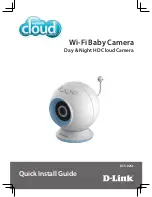
Settings for optimal display performance throughout the product lifetime
50
Nio systems
Settings for optimal display performance throughout the
product lifetime
Avoiding image retention
Image retention (image sticking, ghost image) is the phenomenon
where an image, or a part of it, seems to be ‘burnt’ in the LCD panel.
When you display e.g. a uniform light gray image you distinguish the
ghost image in the background.
This phenomenon occurs on all types of LCD panels when a static image
remains on the screen for a long time (unfortunately the exact period is
not predictable). Also parts of the image that do not change often (e.g.,
toolbars, buttons, borders) are susceptible to image retention.
Image retention may be undone in some cases, but it may also damage
the LCD panel permanently. So it is better to take precautions during
product installation to avoid it.
Here are some countermeasures you can take:
Power off, power save mode, screen saver
Very important is to use screen savers and power saving modes as
much as possible. If you do not need the display for a few hours, switch
it off. If you only need to look at it when you actually do something on
the screen, use a screen saver.
The amount of “relaxation” time should be considerable, the more you
do it the better. “Flashing” the screen for a few seconds with a screen
saver is not sufficient. Image retention is a slow process to build up, but
it also disappears slowly.
Re-Layout
In most applications, a display is used to show a layout of several
components with borders. Whereas the content in these windows can
change continuously, the borders are static images and may cause
boundary image retention. The layout of the windows (size, number of
windows, etc.) should be changed as much as possible.
Summary of Contents for Nio systems
Page 2: ...This page intentionally left blank 2 Nio systems This page intentionally left blank...
Page 4: ...4 Nio systems This page intentionally left blank...
Page 7: ...Nio systems 7 Preface...
Page 8: ...Preface This page intentionally left blank 8 Nio systems This page intentionally left blank...
Page 16: ...Explanation of symbols This page intentionally left blank 16 Nio systems...
Page 17: ...Nio systems 17 Overview...
Page 18: ...Overview This page intentionally left blank 18 Nio systems This page intentionally left blank...
Page 27: ...Nio systems 27 Installation...
Page 53: ...Nio systems 53 Operation...
Page 54: ...Operation This page intentionally left blank 54 Nio systems This page intentionally left blank...
Page 79: ...Nio systems 79 Cleaning...
Page 80: ...Cleaning This page intentionally left blank 80 Nio systems This page intentionally left blank...
Page 86: ...Cabinet This page intentionally left blank 86 Nio systems...
Page 87: ...Nio systems 87 Troubleshooting...
Page 95: ...Nio systems 95 Technical Information...
Page 112: ...Glossary This page intentionally left blank 112 Nio systems...
Page 113: ...Nio systems 113 Warranty Statement...
Page 119: ...Warranty Statement Nio systems 119...
Page 120: ...Warranty Statement 120 Nio systems...
Page 121: ...Warranty Statement Nio systems 121...
Page 122: ...Warranty Statement 122 Nio systems...
Page 123: ...Warranty Statement Nio systems 123...
Page 124: ...Warranty Statement 124 Nio systems...
Page 125: ...Warranty Statement Nio systems 125...
Page 126: ...Warranty Statement 126 Nio systems...
Page 127: ...Warranty Statement Nio systems 127...
















































